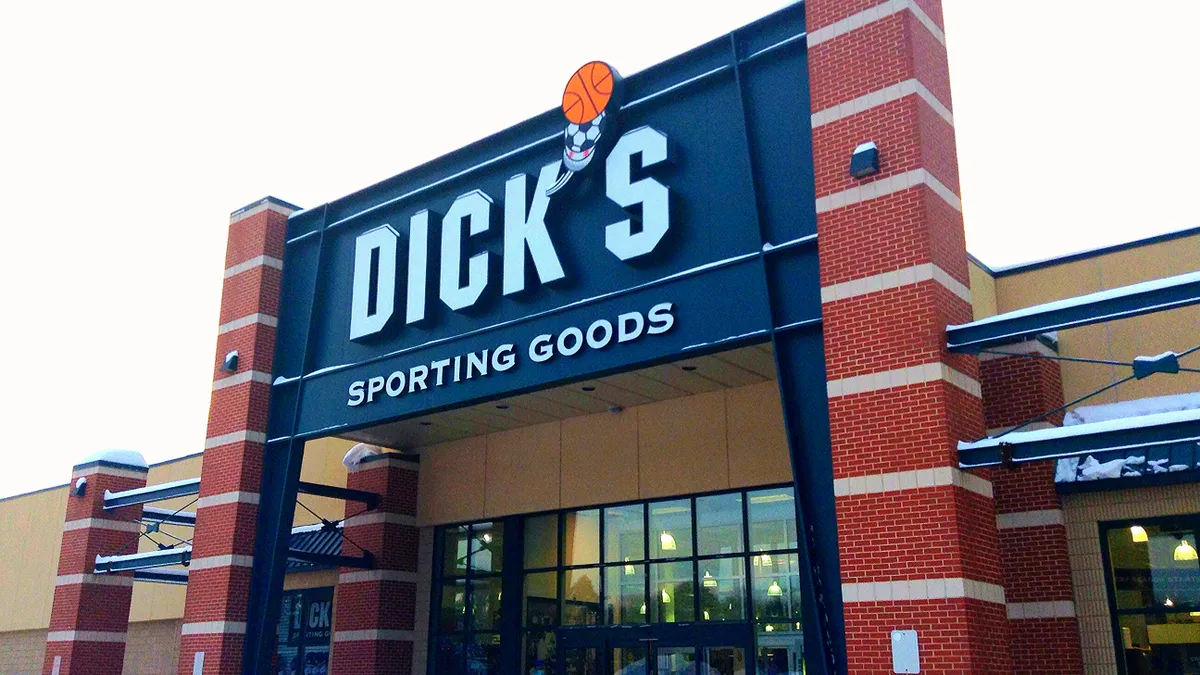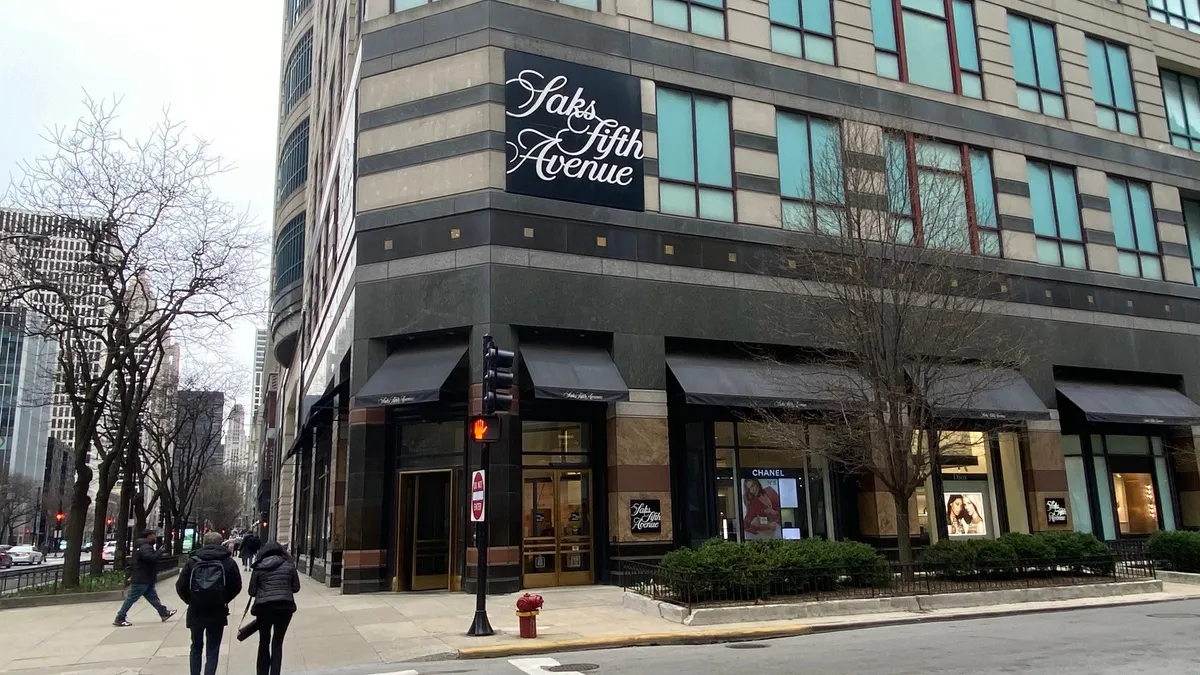U.S. retailers have a gun problem — even the ones that don't sell firearms. Public outcry over firearms has reached a fever pitch, and with good reason. Since Jan. 1, there have been 37 mass shootings in the United States according to the Gun Violence Archive, which defines a mass shooting as an event where "four or more people are shot or killed in a single incident."
The conversation has became particularly fraught in the aftermath of the Feb.14 shooting at Marjory Stoneman Douglas High School in Parkland, FL which killed 16 students and a teacher. The surviving students have been extremely vocal on social media, urging politicians to enact reforms to current gun laws, and consumers began pushing to boycott companies that work with the National Rifle Association, including Amazon, Apple, Google and Roku.
The pressure has paid off, in part. Merchants and brands, if not Congress, are responding.
In the wake of the Parkland shooting, companies including Delta and United Airlines dropped their NRA discounts, and the First National Bank of Omaha discontinued its NRA branded credit card.
Notably, Dick's Sporting Goods, which had already removed semi-automatic rifles (also known as modern sporting rifles) from Dick's stores nationwide after the December 14, 2012 school shooting in Newtown, CT, announced it would no longer sell the guns at any of its Field & Stream stores. That was a direct response to the information that a Field & Stream store had sold the Parkland shooter a gun. In the same statement, the company also announced it would no longer sell high capacity magazines, nor would it sell firearms to anyone under the age of 21.
"We at Dick's Sporting Goods are deeply disturbed and saddened by the tragic events in Parkland. Our thoughts and prayers are with all of the victims and their loved ones. But thoughts and prayers are not enough," according to the company. "We have tremendous respect and admiration for the students organizing and making their voices heard regarding gun violence in schools and elsewhere in our country. We have heard you. The nation has heard you."
Walmart, which stopped selling modern sporting rifles (including the AR-15) in 2015, announced that it would stop selling guns and ammunition to anyone under 21. The company also said in a statement that it would remove items its website that looked like "assault-style rifles, including nonlethal airsoft guns and toys." Walmart does not sell bump stocks, high-capacity magazines or similar accessories, nor do they sell handguns, except in Alaska.
Kroger and L.L. Bean also announced they would not sell weapons to anyone under 21, and outdoor retailers REI and Mountain Equipment Co-Op announced that they would no longer be ordering products from Vista Outdoor, a company whose brands include Bell bicycle helmets and CamelBak water bottles.
On the other side of the aisle, FedEx announced that while it disagreed with NRA's gun policies concerning semi-automatic weapons, it would not be severing ties and would continue its NRA member discount program.
A retailer's dilemma
Despite — or perhaps because of — the divisive nature of the issue, retail brands that have not yet made statements about guns need to think long and hard about taking a stand on this issue. "Retail brands need to take seriously any issue that conflicts with or supports the brand’s own well-defined values, or the values that matter most to its core customers," said Peter Verrengia, senior partner at the global communications management firm of FleishmanHillard. "If you don’t have well-defined values, or don’t track the values of your brand fans, employees and other constituents, you are in trouble in today’s bisected America."
Deb Gabor, CEO of Sol Marketing, a brand strategy consultancy, said it comes down to how brands are defining themselves and their values. "A brand is a magnet that draws people together to share the beliefs behind the brand," said Gabor. "And when brands say, 'This is our social responsibility, and we feel strongly about protecting people,' that's a strong choice. That's designed to draw the brand to its customers.
"The risk is they might alienate part of their audience, but it's a calculated risk," he said. "A brand doesn't make this decision without thinking about the impact on its revenue."
Timing is everything
A retail brand's stance on the gun issue affects more than just the bottom line, which means that brands need to weigh their choices carefully and decide what they want to say, and when.
"First movers always get the first media and attention, good and bad," said Allen Adamson, co-founder of Metaforce, a U.S.-based brand growth company. "If you're the tenth retailer that says, 'we're not going to sell assault rifles,' by then it’s a no-brainer. But the first retailer will get the most positive topspin. They get the halo and the backlash."
However, it's critical for retailers not to make any rash decisions, according to Mark Lipton, graduate professor of management at The New School, and author of Mean Men, The Perversion of America’s Self-Made Man. "I think it's important to be diligent in the self-exploration, and in understanding fully what your corporate position will be," said Lipton. "Look at every angle of that position. I would advise against a quick decision, but instead advise a thoughtful decision."
Many consumers misunderstand the fundamental facts surrounding firearm retailing, making this decision and corresponding action particularly challenging. "Getting lost in the news cycle is less important than understanding that many people believe this is a Constitutional issue. My advice is to not think about the Second Amendment, because it's not a Second Amendment issue. It's an NRA issue. It's about how scared you are as a company about going up against the NRA, and against the might and the vengeance they sell. You have to come to grips with what your values are and do as much of a risk assessment as possible."
Community vs. consumers
When it comes to extraordinarily large companies such as Amazon and Walmart, sweeping corporate decisions can affect more than just their customers. The almost legislative influence of these corporate decisions has added fuel to the divisive nature of the debate. In other large social and political issues such as those relative to discrimination, retailers have moved the needle by threatening to pull business.
"I've been intrigued by CEOs stepping up to the plate and taking action on public policy issues," said Lipton. By way of example, Lipton said that Marc Benioff, chairman and CEO of Salesforce.com, has threatened to pull jobs and business from states that discriminate against transgendered rights as well as states, including Georgia, that pass discriminatory anti-LGBTQ laws. "Benioff is willing to say, 'If you buy our enterprise software system, you get all of us,'" said Lipton. "We're increasingly seeing CEOs taking action on what I believe are broadly public policy issues."
While advocating for policy change hasn't always been a corporate issue, that may be changing. "I think by and large companies prefer to stay out of these things," said Alan Ellstrand, professor of management and associate dean for programs and research at the Sam M. Walton College of Business at the University of Arkansas. "They know they're going to make friends and enemies. That said, if companies do feel passionately about an issue, when you have the scale of Walmart, it's almost like legislating."
Tim Bartley, a professor at Washington University in St. Louis, recently told Washington University's The Source that, "well-known brands are becoming de facto regulators, often picking up where governments have left off or do not want to go."
The risks
For some companies, such as Delta Air Lines, the impact of making a public statement has significant and often unexpected results. The airline publicly dropped its NRA member discount in the wake of the Parkland shooting and said it only ever sold 13 tickets using the discount. Nonetheless, Georgia Republicans passed a retaliatory bill stripping the airline of tax breaks in the state. While Delta would not comment directly for this story, a spokesperson sent Retail Dive an internal memo about the situation that said, in part, "While Delta’s intent was to remain neutral, some elected officials in Georgia tied our decision to a pending jet fuel tax exemption, threatening to eliminate it unless we reversed course. Our decision was not made for economic gain and our values are not for sale. We are in the process of a review to end group discounts for any group of a politically divisive nature."
Yet according to Ellstrand, Delta's decision to double down on its advocacy may pay off. "Some other states now have signaled to Delta that they'd love to them move their headquarters to their state," he said. "So look at the cascading effect. The Georgia legislature punishes Delta, but what if Delta leaves and pulls jobs?"
What happens next?
Certainly, controversial issues are not new, and it seems that new targets for consumer outrage are not hard to find. However, experts believe that current gun controversy has taken on a new tone.
"We didn't see this with Columbine or Sandy Hook," said Lipton. "But now we're seeing a very steep curve in activism on the part of CEOs. We're seeing the slaughter in Florida, and they're saying, 'How are we affected by this, and what can we do.'"
The risks exist no matter which side of the debate a company chooses. "FedEx is probably losing more than they're gaining by taking the stand that they're taking," said Ellstrand. "At this moment, I think the issue favors the people making the statement that the NRA has gone too far. People favor common sense gun legislation, and if you look at the polling, there's overwhelming support for stronger background checks. So a company like FedEx may be taking a more difficult position at this point."
There may also be consequences to what’s happening now that will go beyond the immediate uproar. "The people at Amazon have an algorithm for everything," said Lipton. "Bezos may be sympathetic to this [gun issue], but not enough to take action. But he's looking at the Georgia legislators, and that might be a factor in Amazon's decision on where to put their next headquarters." Notably, Bezos has donated money to support same-sex marriage rights in the past, and he might not be amenable to moving his corporate interests to a state that punishes businesses it disagrees with politically.
Ultimately, though, it will be practically impossible for retail brands to stay neutral, even if they're not directly involved with the issue at hand, said Verrengia.
"Playing to both sides isn’t an option for visible brands whose customers want an answer on this issue," he said. "That’s not only true for those who sell firearms, and for those who provide services to, or have a discount program with the NRA. It’s also true for emotion- and purpose-driven brands that have invited a personal connection with their audiences. You care about penguins and puppies, and/or the flag and the founding values of our country? Then it’s hard not to say something about safety and freedom and quality of life in this context. FleishmanHillard’s opinion research and content analysis shows that in the U.S., the debate over gun control is an issue that has now entered a sustained-movement phase. That likely means this will not blow over, as some brands have hoped."
Retail Dive requested comments from all companies mentioned in this story. Only Delta responded with a statement.
























